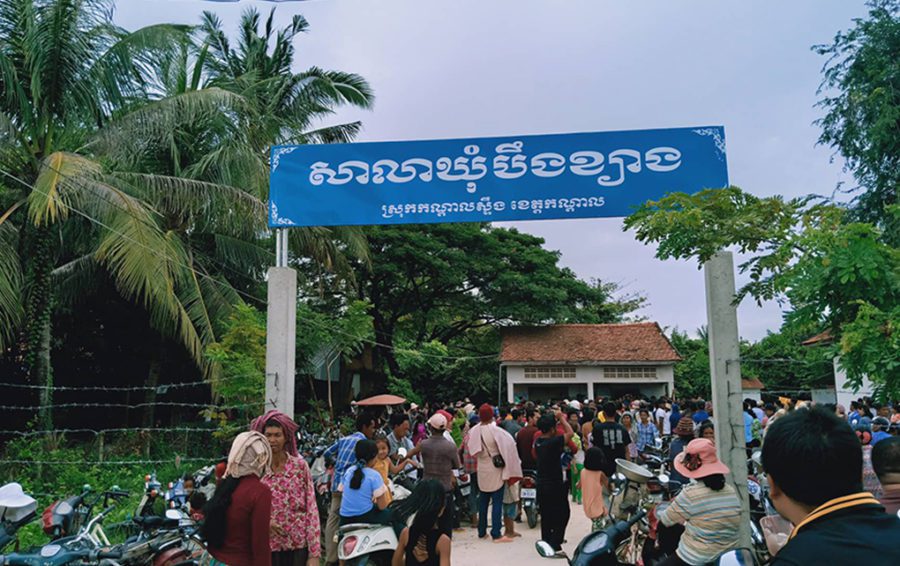NEWS ANALYSIS
Cambodia’s district and provincial administrative councils have a mandate under the law to “establish, promote and sustain democratic development.”
They must manage funds with transparency and accountability, and “find out and respond to the needs” within their jurisdictions, says the Law on Administrative Management of the Capital, Provinces, Municipalities, Districts and Khans.
In an ideal world, these local councils would play a key role collecting information about people’s needs that could then be reflected in future plans for development, said Korn Savang, a coordinator for the Committee for Free and Fair Elections.
However, Savang said, these functions were undermined on Sunday when the ruling Cambodian People’s Party (CPP) won almost every seat at the district and provincial councils across the country in the ballots of commune councilors.
With the opposition Cambodia National Rescue Party (CNRP) having been dissolved in November 2017 — and its 43 percent of commune seats redistributed almost entirely to the CPP — the ruling party had between 92 and 100 percent of the electors voting in every province in the indirect elections.
This not only made the weekend ballots a foregone conclusion, Savang said, but means that transparency and accountability will be now lost from the councils, now absent even the perfunctory oversight of a powerless minority of opposition voices.
“We can take a look at an actual example — currently, the National Assembly only has one party,” Savang said, explaining that the CPP’s lawmakers seemed less interested in finding people’s problems since the opposition was expunged.
“That is the duty of National Assembly representatives to visit people and look at these issues,” he said. “What we have seen instead is inactivity.”
When dozens of former CNRP members were summoned to court over the past few weeks to be interrogated for gathering together to eat noodles, he added, no lawmakers took an interest in the case and it passed by without much inquiry.
San Chey, executive director of the Affiliated Network for Social Accountability, agreed that the monitoring of local issues should not come from just one party. The CPP now would be free to run the administrative councils with no oversight.
“When the CNRP, the main competitor with thousands of council members, was dissolved … the influence of the councils decreased,” Chey said.
Political analyst Meas Nee warned that dissatisfaction among the populace could rise if the ruling party became complacent about reforms as a result. The absence of even a minority of critical voices could create a dangerous situation, he said.
“If they do not enact reforms and improve democracy at the sub-national level, I think whenever Cambodia has a free and fair election again, the CPP will face risks at that time,” Nee said.
Sophal Ear, an associate professor of diplomacy and world affairs at Occidental College in Los Angeles, said that Sunday’s selection of district and provincial councilors simply helped cement Cambodia’s transition back into one-party rule. The government would be able to do whatever it wants with impunity, he said.
However, CPP spokesman Sok Eysan extolled the virtues of one-party rule.
“A country with a single-party = a democratic country following the path of one party, achieving development like countries with more parties that always have nonstop quarrels,” Sok Eysan wrote on the Telegram messaging service.
“China, with 1.5 billion people, has had one party since 1949 and has become an world economic power that other countries with many parties are scared of,” Eysan said. “Vietnam, with more than 100 million people, is becoming a developed country that countries with many parties have good relations with.”
“Having more or fewer parties is up to the people of each country to decide.”
(Translated and edited from the original article on VOD Khmer)












